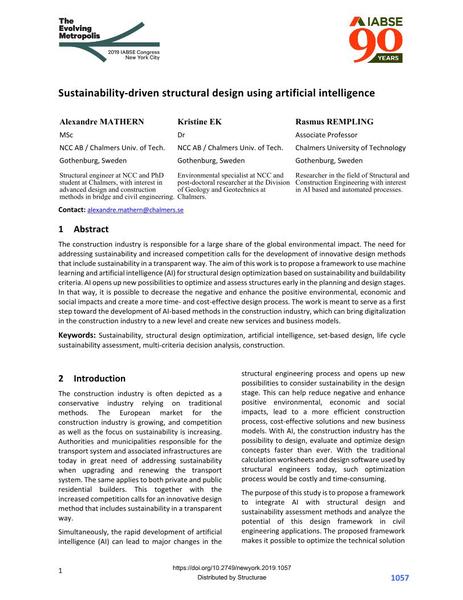Sustainability-driven structural design using artificial intelligence

|
|
|||||||||||
Bibliografische Angaben
| Autor(en): |
Alexandre Mathern
(NCC AB; Chalmers University of Technology)
Kristine Ek (NCC AB; Chalmers University of Technology) Rasmus Rempling |
||||
|---|---|---|---|---|---|
| Medium: | Tagungsbeitrag | ||||
| Sprache(n): | Englisch | ||||
| Tagung: | IABSE Congress: The Evolving Metropolis, New York, NY, USA, 4-6 September 2019 | ||||
| Veröffentlicht in: | The Evolving Metropolis | ||||
|
|||||
| Seite(n): | 1057-1064 | ||||
| Anzahl der Seiten (im PDF): | 8 | ||||
| DOI: | 10.2749/newyork.2019.1057 | ||||
| Abstrakt: |
The construction industry is responsible for a large share of the global environmental impact. The need for addressing sustainability and increased competition calls for the development of innovative design methods that include sustainability in a transparent way. The aim of this work is to propose a framework to use machine learning and artificial intelligence (AI) for structural design optimization based on sustainability and buildability criteria. AI opens up new possibilities to optimize and assess structures early in the planning and design stages. In that way, it is possible to decrease the negative and enhance the positive environmental, economic and social impacts and create a more time‐ and cost‐effective design process. The work is meant to serve as a first step toward the development of AI‐based methods in the construction industry, which can bring digitalization in the construction industry to a new level and create new services and business models. |
||||
| Stichwörter: |
Nachhaltigkeit
|
||||
